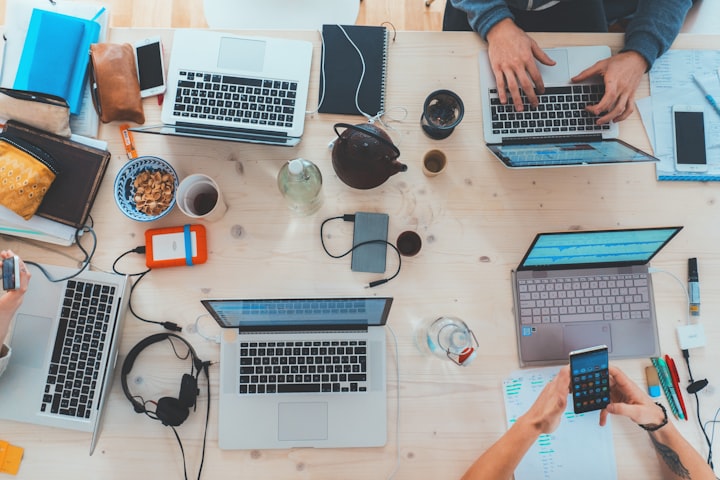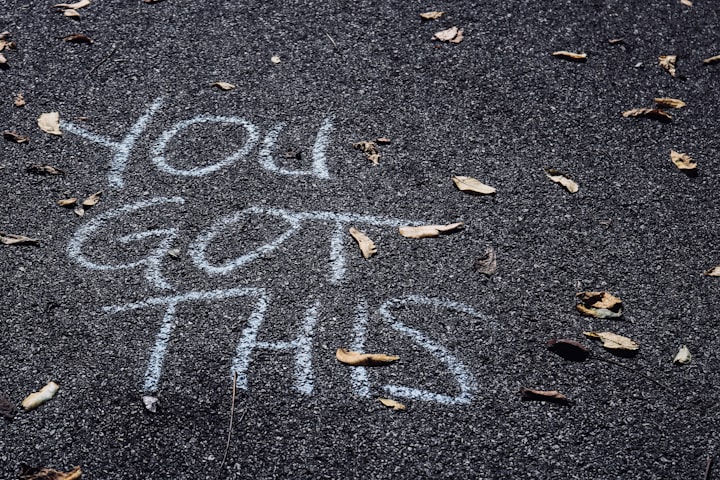Is Social Media Affecting Your Mental Health?
It can but there are ways to prevent it.

Studies say that social media can become an addiction for people, which makes sense since we are social by nature, but too much of anything is a bad thing. People need to interact with others to improve their mental health and creating new connections online can help immensely by relieving anxiety, stress, depression, and giving yourself a boost of joy.
This mainly occurs when you interact with someone in person but there're people who are trying to use online connections to replace real world ones to achieve the same outcomes and this will not reach the same results. You may not be one that constantly waits for a new post on Instagram or Facebook, but those that do are causing themselves more harm than good.
Pros
There’re lots of ways that social media has helped people today, mainly because we have been glued to our houses. Over the past year, we have all had birthdays or special events that we could not celebrate with friends and family, but social media allowed us to keep in contact with the people we love and vice versa.
You can also find new friends with similar hobbies through social media. With an unlimited number of groups, you can find one that speaks to you and get creative with people on a topic that intrigues you. Sharing your creativity can help someone who needs it (like I am trying to do now) but don’t know how to find it.
Cons
With the technology rather young at this point, there’s not a lot of data that shows the long term negative effects for using social media, but there're loads of studies showing that people who spend a majority of their time on social media are at a higher risk for self harm, depression, anxiety, loneliness, or suicidal thoughts.
If you have ever seen ads for a workout program, you were probably a little self-conscious about how the model in the picture looked compared to you. Not their fault, as that is the models job to look like that, but this is one common situation that we experience resulting in negative thinking.
Another everyday example is going on Instagram and seeing that your friends went out without you. No one likes feeling left out but it's a common reaction to thinking that you were not invited to something. Others has become self-absorbed by posting selfie after selfie, thinking that people want to see more of them, but this can push people away and leave you with less real life relationships.
Why People Use Social Media Apps
Social Media companies make money by keeping the users' attention on their social media app, and checking their app for updated posts often throughout the day. This causes some to experience FOMO or the “fear of missing out” on something like the latest news or a post from one of your friends.
The reason I see the most for people turn to their phones is to use it as a security blanket. When someone feels uncomfortable in a public situation, they will go on a social media app as a way to relieve the tension, but this prevents the face to face exchange that would help ease your problem with being comfortable in the situation.
Using social media a lot could also be your way of hiding other problems in your life. Feelings of depression and boredom are necessary in life because it's helps you figure out what you enjoy doing the most in life. If you do not deal with your problems, you do not allow yourself to find healthy ways to manage your mood.
When social Media is effecting your Mental Health
Like anything else that has an outcome on your life, there’re signs that you have been on social media too long. One is that you are spending less time with your friends offline than you are in the online world. This is becoming an alternative to meeting someone face to face and is occurring when you are out with friends or home by yourself. Mainly, you believe that people are having more fun than you and this leads you to feel uncomfortable.
This could lead to cyberbullies, where people believe that they can say anything without consequence and the person being bullied has no control over who is posting or what they are posting. Kids are becoming distracted at school and adult are distracted at work because the apps work too well in providing content.
Others are suffering from sleep deprivation due to constantly checking their devices. The light from your phone can ruin your sleep, and lead to mental health issues.
Social Media doesn’t have to cause mental health problems.
With the ever-growing list of positive contributions, there seems to be an equal list of negatives for social media. Yet, there're ways you can prevent or lessen the negative effects. If you find yourself on your phone too much throughout the day, the solution may be another app.
There’re apps that track the amount of time you spent on social media every day and you can set goals to help you reduce the amount of time you use social media. If you are like me, you bring your phone or tablet to bed with you, but this is a bad idea. This will increase the odds that you will stay up late checking something on your phone, so leave your devices in another room to charge.
Some of us enjoy social media apps and don’t want to delete them so, to compromise, you can turn off the notifications. Every time you hear or feel a buzzing you probably tense up a bit and your first thought is to check your phone. Turning off notifications will help you focus by reducing distractions and as a result you will have more control over how you spend your time.
Conclusion
There’s a vicious cycle that the community social media users fall into. First, they feel lonely or stressed and use social media as a way to connect with others. This makes them feel better at first, so they keep doing it.
Second, what you see on, let’s use Instagram, may make you feel like you are inadequate. Third, the negative feelings become worse the more that you are on the app.
Finally, the worse feelings make you want to do something that makes you feel good, which in this case is more social media use. I don’t think that social media is a bad thing but I do believe that there're limits that people need to understand for every person that uses it.






Comments
There are no comments for this story
Be the first to respond and start the conversation.